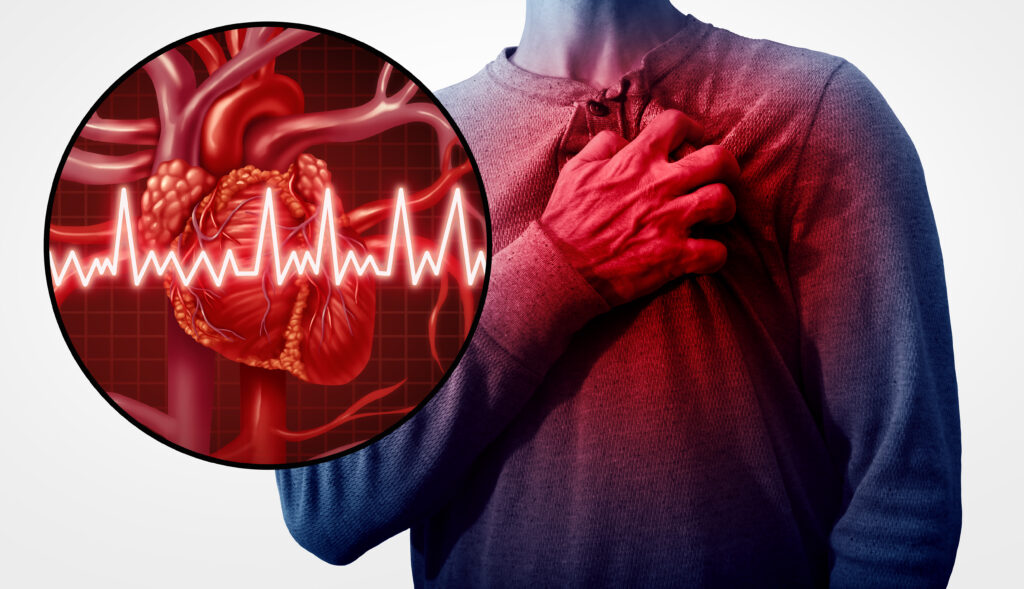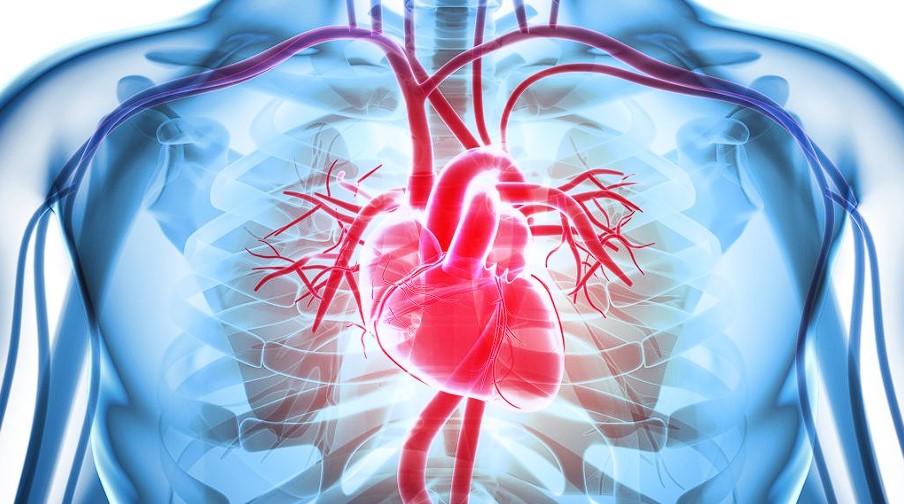
Heart failure—a condition that affects over 6 million adults in the United States alone—is not as straightforward as it sounds. Contrary to the name, heart failure doesn’t mean the heart has stopped working completely. Instead, it means the heart can’t pump blood as efficiently as it should, which leads to a host of serious health issues. In this article, we’ll walk you through everything you need to know about heart failure: from early signs and causes to treatment options and lifestyle tips. Whether you’re a patient, caregiver, or someone simply curious, you’re in the right place.
What Is Heart Failure?
Heart failure, also known as congestive heart failure (CHF), occurs when the heart muscle is weakened or stiff and struggles to pump blood efficiently. As a result, blood and oxygen don’t circulate properly, which can damage vital organs and lead to life-threatening complications.
There are two main types of heart failure:
-
Left-sided heart failure: The most common form. It happens when the left ventricle can’t pump enough blood out to the body.
-
Right-sided heart failure: Occurs when the right ventricle struggles to pump blood to the lungs. It often results from left-sided failure.
Each type can be further classified as:
-
Systolic heart failure: The heart muscle can’t contract forcefully enough.
-
Diastolic heart failure: The heart can’t relax and fill properly between beats.
Common Symptoms of Heart Failure

Heart failure symptoms can develop suddenly (acute) or gradually (chronic). They vary depending on the severity and type of heart failure.
Typical Signs Include:
-
Shortness of breath, especially during physical activity or when lying down
-
Fatigue and weakness
-
Swelling (edema) in the legs, ankles, and feet
-
Rapid or irregular heartbeat
-
Persistent coughing or wheezing, possibly with white or pink blood-tinged mucus
-
Sudden weight gain from fluid retention
-
Difficulty concentrating or decreased alertness
If you experience any of these symptoms, especially in combination, it’s crucial to consult a healthcare provider promptly.
Causes and Risk Factors
Heart failure often develops after other conditions have damaged or weakened the heart.
Common Causes:
-
Coronary artery disease (CAD): The most frequent cause, where arteries supplying the heart become narrowed or blocked.
-
High blood pressure (hypertension): Makes the heart work harder, causing stiffness or weakness over time.
-
Previous heart attack: Damages the heart muscle permanently.
-
Cardiomyopathy: A disease of the heart muscle due to infection, drug abuse, or genetics.
-
Heart valve disease: Faulty valves can strain the heart.
Risk Factors Include:
-
Diabetes
-
Obesity
-
Sleep apnea
-
Smoking
-
Excessive alcohol or drug use
-
Family history of heart disease
The Four Stages of Heart Failure
According to the American Heart Association, heart failure progresses in stages—from A to D. Each stage has different recommendations for treatment and lifestyle adjustments.
| Stage | Description | Key Features |
|---|---|---|
| A | At high risk for heart failure but no symptoms | Hypertension, diabetes, obesity |
| B | Structural heart disease, no symptoms | Previous heart attack, valve disease |
| C | Structural disease with symptoms | Shortness of breath, fatigue |
| D | Advanced disease | Severe symptoms at rest, requiring specialized treatment |
Diagnosis: How Is Heart Failure Detected?
Doctors use a variety of tests and tools to diagnose heart failure and determine its severity.
Common Diagnostic Tools:
-
Echocardiogram: Measures ejection fraction and overall heart function.
-
Electrocardiogram (ECG/EKG): Detects irregular rhythms or damage.
-
Blood tests: Check for B-type natriuretic peptide (BNP), which rises during heart failure.
-
Chest X-ray: Identifies fluid in the lungs or enlarged heart.
-
Stress tests: Show how the heart performs under strain.
Treatment Options for Heart Failure
While heart failure is a chronic condition, it can be managed effectively with a combination of medications, lifestyle changes, and sometimes medical procedures.
Medications:
-
ACE inhibitors and ARBs: Lower blood pressure and reduce strain on the heart.
-
Beta-blockers: Slow the heart rate and reduce blood pressure.
-
Diuretics: Help remove excess fluid.
-
Aldosterone antagonists: Control hormones that cause fluid buildup.
-
SGLT2 inhibitors: Newer class improving outcomes in heart failure patients, even without diabetes.
Devices & Surgery:
-
Implantable cardioverter-defibrillators (ICDs)
-
Pacemakers
-
Left ventricular assist devices (LVADs)
-
Heart transplant in end-stage cases
Each treatment is tailored to the individual’s type and stage of heart failure.
Lifestyle Changes That Can Make a Big Difference
Medication is crucial, but lifestyle is often the game-changer in managing heart failure. Think of it as a long-term partnership between you and your heart.
Heart-Healthy Habits:
-
Limit salt intake (less than 2,000 mg/day)
-
Monitor fluid intake
-
Stay active, as approved by your doctor
-
Quit smoking (yes, now is a great time)
-
Avoid alcohol and caffeine in excess
-
Manage stress through mindfulness, hobbies, or counseling
Pro Tip: Use a daily log to track weight, symptoms, and medications. Early detection of changes can prevent hospital visits.
Can Heart Failure Be Prevented?
In many cases—yes. Prevention largely revolves around managing risk factors early and consistently.
Steps to Reduce Risk:
-
Treat high blood pressure and diabetes effectively
-
Eat a heart-healthy diet (like the DASH or Mediterranean diet)
-
Exercise regularly
-
Maintain a healthy weight
-
Get regular health checkups
By taking proactive steps today, you can prevent or delay the onset of heart failure tomorrow.
Living with Heart Failure: What to Expect
A heart failure diagnosis can feel overwhelming, but many people live full, active lives with proper care. Joining support groups, both online and offline, can help you stay motivated and informed.
Also, keep in touch with your healthcare team. Managing medications, appointments, and symptoms is easier when you’re not doing it alone.
When to Seek Emergency Help
Call emergency services or go to the ER immediately if you experience:
-
Chest pain
-
Severe shortness of breath
-
Fainting or severe dizziness
-
Rapid or irregular heartbeat with chest pain or breathlessness
These may indicate a heart attack or life-threatening arrhythmia.
Final Thoughts
Heart failure doesn’t mean the end—it’s a serious condition, yes—but with the right knowledge and proactive management, many people live long and fulfilling lives. The key lies in understanding your body, listening to your symptoms, working closely with your doctor, and sticking to a treatment and lifestyle plan.
Let’s face it—our hearts work 24/7 for us. Maybe it’s time we gave them the care they deserve.
